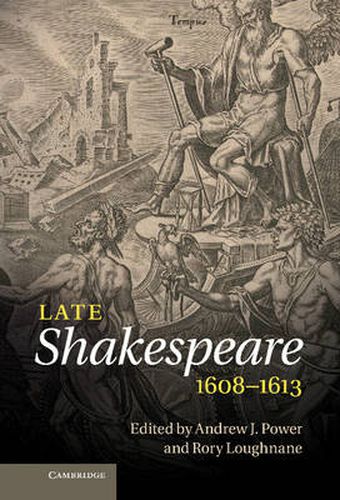Readings Newsletter
Become a Readings Member to make your shopping experience even easier.
Sign in or sign up for free!
You’re not far away from qualifying for FREE standard shipping within Australia
You’ve qualified for FREE standard shipping within Australia
The cart is loading…






In fourteen specially commissioned chapters by leading Shakespeare scholars from around the globe, Late Shakespeare, 1608-1613 provides an essential reappraisal of the final phase of Shakespeare’s writing life. Arranged for the first time in the best-established chronological sequence, Shakespeare’s last seven extant plays are discussed in detail in dedicated chapters, from Pericles to the other late co-authored works, King Henry VIII and The Two Noble Kinsmen. The plays are situated in the context of Shakespeare’s financial investments, his focus on the practice of reading, the changing nature of his acting company and the pressing issues of contemporary politics and urban life. The book also goes on to explore the relationship between Shakespeare and his audience and considers the dominant themes in his final works. Analysing and responding to the latest criticism in the field, this volume brings to light a vital re-examination of what it means to discuss ‘late Shakespeare’.
$9.00 standard shipping within Australia
FREE standard shipping within Australia for orders over $100.00
Express & International shipping calculated at checkout
In fourteen specially commissioned chapters by leading Shakespeare scholars from around the globe, Late Shakespeare, 1608-1613 provides an essential reappraisal of the final phase of Shakespeare’s writing life. Arranged for the first time in the best-established chronological sequence, Shakespeare’s last seven extant plays are discussed in detail in dedicated chapters, from Pericles to the other late co-authored works, King Henry VIII and The Two Noble Kinsmen. The plays are situated in the context of Shakespeare’s financial investments, his focus on the practice of reading, the changing nature of his acting company and the pressing issues of contemporary politics and urban life. The book also goes on to explore the relationship between Shakespeare and his audience and considers the dominant themes in his final works. Analysing and responding to the latest criticism in the field, this volume brings to light a vital re-examination of what it means to discuss ‘late Shakespeare’.